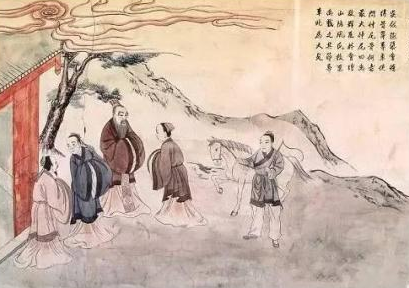what are there which he considers of secondary importance, and allows himself to be idle about?
孰后倦焉?
But as in the case of plants, which are assorted according to their classes, so he deals with his disciples.
譬诸草木,区以别矣。
How can the way of a superior man be such as to make fools of any of them?
君子之道焉可诬也?
Is it not the sage alone, who can unite in one the beginning and the consummation of learning?"
有始有卒者,其惟圣人乎!”
Tsze-hsia said, "The officer, having discharged all his duties, should devote his leisure to learning.
子夏曰:“仕而优则学,
The student, having completed his learning, should apply himself to be an officer."
学而优则仕。”

Tsze-hsia said, "Mourning, having been carried to the utmost degree of grief, should stop with that."
子游曰:“丧致乎哀而止。”
Tsze-hsia said, "My friend Chang can do things which are hard to be done, but yet he is not perfectly virtuous."
子游曰:“吾友张也为难能也,然而未仁。”
The philosopher Tsang said, "How imposing is the manner of Chang! It is difficult along with him to practice virtue."
曾子曰:“堂堂乎张也,难与并为仁矣。”
The philosopher Tsang said, "I heard this from our Master: 'Men may not have shown what is in them to the full extent,
曾子曰:“吾闻诸夫子,人未有自致者也,
and yet they will be found to do so, on the occasion of mourning for their parents."
必也亲丧乎。”













